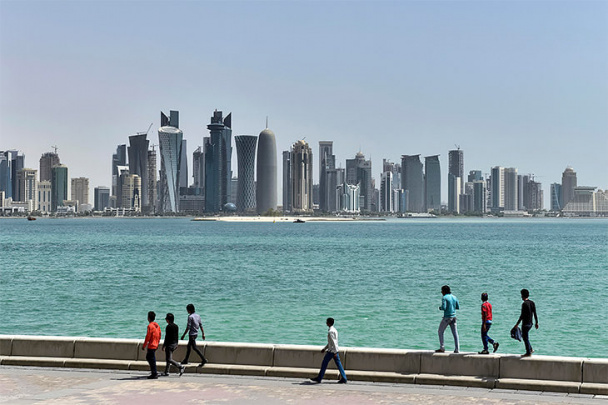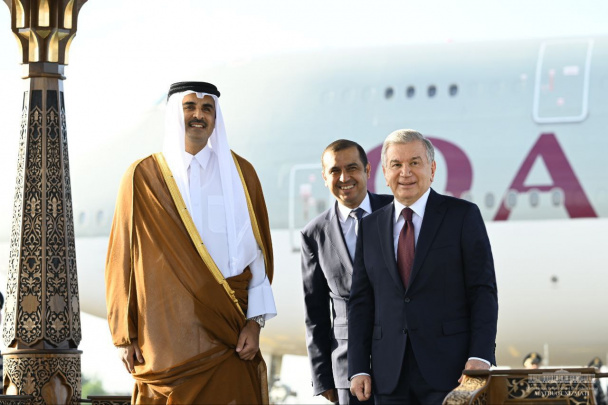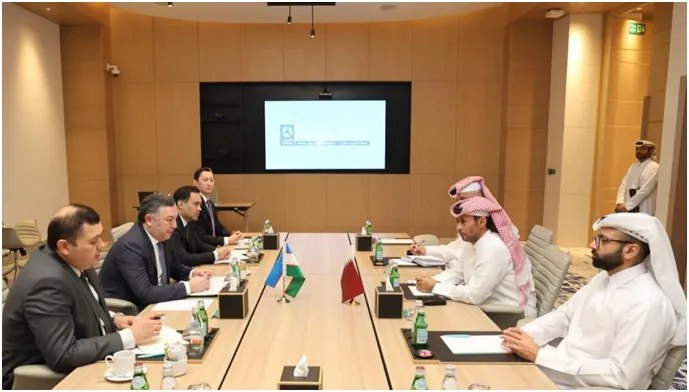Qatar opens an embassy in Uzbekistan; what does this mean?
Earlier this week, President of Uzbekistan Shavkat Mirziyoyev received several new ambassadors who arrived in our country. The new ambassadors presented their credentials to the President. Among them was Hassan Hamza Hashim, the ambassador extraordinary and plenipotentiary of Qatar for the first time.
For the first time since the independence of Uzbekistan, Qatar has appointed its ambassador extraordinary and plenipotentiary, opening an embassy in Tashkent. What kind of country is Qatar, what are the important aspects of this country, and what does opening an embassy mean?
Uzbekistan and Qatar recognized each other as sovereign and independent states on November 27, 1997, during the meetings in Ankara. In November 2010, President Karimov made a state visit to Qatar.
If you look at the map, you will see that Qatar is a very small country. The area is about 11.5 thousand square kilometers. That is, Uzbekistan is 39 times bigger than Qatar. According to 2020 data, the population is less than 3 million. It is 12 times smaller than Uzbekistan’s population.
Qatar became independent from England in September 1971. It is a country very rich in hydrocarbons: according to natural gas reserves, it ranks 3rd in the world. In terms of proven gas reserves, only Russia and the Islamic Republic of Iran are ahead of Qatar. In terms of oil sales, Qatar ranks 21st in the world.
The economic power of the countries of the world is also measured by the size of the gross domestic product. Qatar’s GDP, measured by purchasing power, is estimated at over $280 billion. On a per capita basis, each Qatari owns more than $105,000 in national wealth. According to its economic potential, Qatar is one of the countries with great potential in the world.
However, Qatar’s importance and uniqueness is not only its wealth related to hydrocarbons. There are several important countries in the Arab world, including Saudi Arabia, the United Arab Emirates, the Arab Republic of Egypt and others. Among these countries, Qatar has certain geopolitical and geoideological resources that others do not.
Al-Jazeera is the first thing that comes to mind when people think of Qatar. Al-Jazeera is the leading mass media in shaping the political mood and geopolitical views of the Arab-Muslim world.
Moreover, Qatar’s political views are well-researched. Qatar is a globalist state, official Doha has certain projects regarding the future of Islamic civilization.
At the center of every ideology, worldview systems are nuclear, that is, central values. The central value of democracy is the will of the majority. The core value of liberal democracy is the will of the majority and the protection of the rights of the minority. A core value in the monotheistic religions of Judaism, Christianity, and Islam is righteousness. Righteousness, according to these religions, is seen as the guarantor of the safety and happiness of people and societies in this world and the hereafter.
Humanity has entered globalization. In the Muslim world, there are several views on how to protect and maintain “righteousness” in a globalized world. Some countries and groups believe that in order to protect Islam, it is necessary to fight with freedom, modernism, and globalization.
However, Qatar and some other countries do not oppose Islamic civilization to globalization, political freedom and activism, but see political activism as a condition for survival in the global world.
When countries open embassies in each other, they take the position that “political, economic and other relations with you are very important”. The development of diplomatic, economic, cultural and geoideological relations between Uzbekistan and Qatar also means that Tashkent’s subjectivity in the international arena is increasing.
In fact, in the globalizing world, one of the successes of the states is to weld and synthesize their strong identities to freedom, political and economic activity, and as a result, to form large-scale projects.
Related News

17:57 / 12.03.2025
Citizen of Uzbekistan wrongfully convicted in Qatar returns home

20:05 / 06.03.2025
Uzbekistan’s leading venture studio ‘Startup Garage’ expands to Middle East, unlocking new startup opportunities

16:56 / 01.03.2025
President Mirziyoyev ratifies Strategic Partnership Agreement with Qatar

18:32 / 28.01.2025



